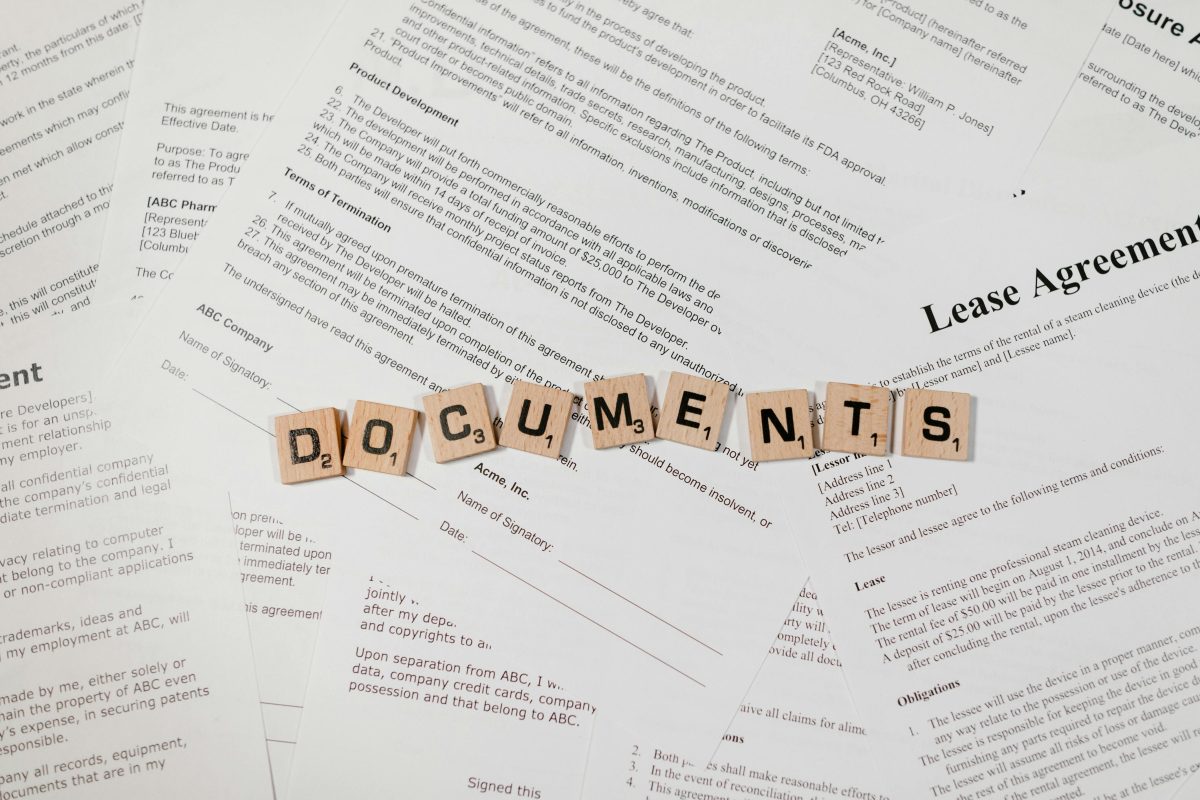Transfer of executive rights, legal notes for new legal representatives
The process of transferring executive rights and the role of legal representative in an enterprise is not only a change in the information of the legal representative but also the appearance of a new executive along with the takeover of the previous affairs of the company left by the old legal representative. The question is, is the new legal representative responsible for the outstanding violations left by the old legal representative? In fact, depending on each specific case, the responsibilities of the new executive will arise, our article below will provide more comprehensive points about this.

1. Roles and responsibilities of legal representatives
According to the Law on Enterprises, the legal representative is an individual recorded in the Enterprise Registration Certificate and has the right to represent the enterprise in transactions with third parties as well as before state agencies. This means that the new legal representative will be the individual who is legally responsible for all activities of the enterprise, including unfinished work or problems arising from the period when the former representative was still in office.
In the process of transferring executive rights, even if the personal legal representative is changed, the corporate legal entity is still maintained continuously and without interruption in terms of legal rights and obligations. This leads to an important principle that the new legal representative cannot refuse to take responsibility for resolving outstanding issues from the old representative’s period, if these issues arise from the operation of the enterprise and fall under the obligations of the legal entity. At the same time, ongoing or incomplete transactions will not lose their legal validity just because of the change of legal representative.
2. Legal liability for violations of the former legal representative
A matter of concern is whether the new legal representative is responsible for the outstanding legal violations left by the old representative? The answer depends on the specific nature of each case:
Case 1: The violation belongs to the corporate legal entity
If the violation occurs during the operation of the enterprise and is determined to be a legal obligation of the legal entity (e.g., tax debts, breach of contract, unpaid debts), the new representative is responsible for resolving these issues on behalf of the enterprise. The change of representative does not change the legal obligation of the enterprise.
For example: The enterprise has not paid the debt to the partner during the time the old legal representative operates, the new representative is obliged to perform this payment obligation, because this is the responsibility of the enterprise, not only the individual representative.
Case 2: Personal violations of the former legal representative
If the violation arises from the personal acts of the former representative (e.g., fraud, abuse of power, violation of criminal law), the new legal representative is not liable. Typically, it can be seen or arise the responsibility of the former representative related to violations leading to the loss of assets of the enterprise, such as the former representative falsifying personal records to commit acts of appropriating the assets of the enterprise. In this case, the responsibility will belong to the former representative and will be handled in accordance with the law.
3. Pending transactions
An important aspect of the transfer of executive rights is the transactions that are in progress. According to regulations, transactions that have been legally established during the period when the former legal representative is still incumbent will continue to have legal effect. The new representative is obligated to take over and maintain these transactions until they are completed. It should be noted that the determination of whether the transaction is legitimate or not is understood as determining the jurisdictional aspect of the former legal representative with the contracts and decisions that the legal representative approves as a legal entity of the enterprise they are representing.
Thus, it can be seen that the process of transferring executive rights and the role of legal representative in the enterprise requires the new representative to have a deep understanding of the legal responsibilities that they will bear. The change of representative does not eliminate the legal obligation of the enterprise for existing transactions or obligations. Therefore, the new legal representative needs to actively review, clearly delineate responsibilities and take appropriate handling measures to ensure continuity and transparency in business activities.
4. What to do to control the risk for the new operator?
When taking on the role of new legal representative, the executive not only take the responsibility of managing the business but also faces many potential legal risks from the past and current operations of the company. To limit these risks, new operators before and after adoption should pay attention as well as take some of the following actions:
Conduct a comprehensive legal review: Immediately after taking over the role, the new legal representative needs to conduct a comprehensive legal review of the business. This includes:
- Review current contracts and transactions: Examine signed contracts, especially those in progress, to ensure legality and identify obligations that must continue to be performed.
- Debt and financial inspection: Identify outstanding debts, payment obligations to partners, banks, tax authorities and other related parties.
- Assess legal disputes: Review ongoing litigation, disputes, or complaints that the business is a party to. This helps the new representative understand the current legal situation and have a timely handling plan.
- Legal compliance checks: Ensure that the business has fully complied with legal regulations on tax, labor, environment, financial reporting, etc.
- Re-audit financial issues arising at the stage of management by the former representative.
The results of this review will provide a clear picture of the legal status of the business, helping new executives proactively manage risks and handle outstanding issues.
To request the handover of detailed documents from the old legal representative, in order to effectively control risks, the new representative needs to request the full handover of legal documents and important documents from the old legal representative, including:
- Business contracts and transactions that are still valid;
- Financial statements, debt records and tax situation;
- Licenses, legal documents and procedures that have been or are being carried out;
- Documents related to existing legal disputes or claims.
The transparent and complete handover will help the new representative limit legal “ambiguities”, thereby promptly identifying potential risks.
Consult an independent legal expert: In many cases, it is difficult for new executives to grasp and assess all the legal risks of the business on their own. Consultation with an independent legal expert is an important solution to:
- Objective legal risk assessment: An independent lawyer or legal advisor will assist in reviewing legal issues that have not yet been detected or handled;
- Provide a specific solution: Legal experts will propose solutions to handle outstanding legal issues, helping businesses avoid unnecessary damages;
- Legal compliance strategy consulting: Ensure that the new legal representative runs the business in accordance with the provisions of the law.
Establishing an internal risk management system, risk control not only stops at handling backlogs but also must build a risk control system for subsequent activities. The new representative needs to establish or strengthen an internal risk management system, including:
- Develop transaction control and approval processes: Important contracts and transactions need to be carefully reviewed to avoid errors and legal violations.
- Establish reporting processes and financial regulations: Ensure financial and tax obligations are fulfilled on time and transparently.
- Develop operational processes and regulations for each team and department: Bringing all the company’s activities according to a common operating code is essential to bind the responsibilities of each employee in the company as well as to apply regulations on disciplinary action, compensation, material liability…
In case of detecting serious legal violations from the period of the old legal representative, the new executive may consider: (i) Sending a written notice to the owner, shareholders, the Board of Directors, the Board of Members, the Investor, etc. on legal issues that existed before the time of receiving the task, (ii) Consultation with a Lawyer to make a transparent report, clearly determining the responsibilities of the former legal representative if the violation arises from them personally.
The process of transferring executive rights always has potential legal risks, especially outstanding issues from the period of the former legal representative. To protect themselves and ensure stable business operations, new executives need to proactively review the law, establish a risk control system and consult with independent experts. Risk control not only helps to minimize losses but also creates a solid foundation for businesses to develop sustainably in the future.
Time of writing: 18/12/2024
The article contains general information which is of reference value, in case you want to receive legal opinions on issues you need clarification on, please get in touch with our Lawyer at info@cdlaf.vn

Why choose CDLAF’s service?
- We provide effective and comprehensive legal solutions that help you save money and maintain compliance in your business;
- We continue to monitor your legal matters even after the service is completed and update you when there are any changes in the Vietnamese legal system;
- Our system of forms and processes related to labor and personnel is continuously built and updated and will be provided as soon as the customer requests it;
- As a Vietnamese law firm, we have a thorough understanding of Vietnam’s legal regulations, and grasp the psychology of employees, employers, and working methods at competent authorities;
- CDLAF’s team of lawyers has many years of experience in the field of labor and enterprises, as well as human resources and financial advisory.
- Strict information security procedures throughout the service performance and even after the service is completed.
You can refer for more information:
- Investors acquiring enterprise and financial risks to be aware
- Business Cooperation Agreement: Legal Risks You Should Know
- Summary of the latest legal regulations for News websites










